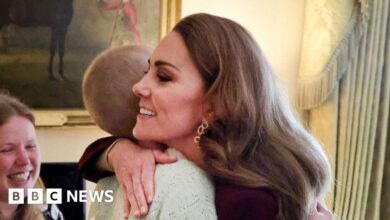Asking Eric: Partner’s death reveals other secret relationships

Dear Eric: Two months ago, I lost the love of my life when he died unexpectedly. I have known him for almost 10 years, first as friends that evolved into serious dating.
I learned a week after he passed that while we were a couple he had another current girlfriend and several more partners. His best friend confided afterwards that I was his main relationship, his emotional connection to me was authentic, but monogamy was never a goal of his.
Looking back, the new information has explained features of the relationship that I sensed were off. The grief has been complicated by feeling hurt.
My new dilemma is that he introduced me to co-workers, friends and family and some people knew about or met the girlfriend and some didn’t. His narrative about his relationships depended on the audience.
When someone wants to talk to me about how I am doing or my favorite memories of him, I don’t know what information I should share. I have chosen not to bad-mouth his memory with anyone who knew him, but my mourning is multi-layered, and I want to talk about my experience in a genuine manner. Should I mention he had other romantic pursuits in a brief and matter-of-fact manner?
— Gripped by Grief
Dear Gripped: I’m so sorry for your loss and I’m sorry that your grief has been complicated by this new information. That’s painful and leaves a lot unresolved.
With any grief processing, it’s wise to choose your audience. You don’t have to hold yourself back or stifle your feelings but consider who can hold this information with appropriate care. And, more importantly, who can provide you the comfort you need and deserve.
It’s not gossip to tell the truth about where you are with your grief or about the facts you learned about your partner. And if the people you’re talking to can hold the two complicated truths — that you loved him and that this new information hurts — you may find some relief.
Before you share your feelings, however, you’ll want to think through how you want to respond to follow-up questions people surely have. It’s fine to say you don’t want to give further details about what you knew or suspected. But I don’t want you to be blindsided by curiosities that might feel intrusive and detrimental to your healing.
Dear Eric: We love your compassion and kindness to your writers and have rarely disagreed with your responses. This is not to disagree so much as to add to your thoughts on the letter from “Bad Advice,” who asked family members for support and then were chided for not taking the family members’ advice. I have a brother and sister-in-law who also found themselves (several times) in need of what they called advice but was really a handout.
They got upset when we told them we would help them out after they made smarter decisions, i.e. trade in their brand-new Porsche for something they could afford, take their adult children off their cell plans, cancel a refundable vacation and put the money toward high credit card debt and to cut back on Starbucks (twice a day) and eating out at nice restaurants four times a week. They were incredulous (like your writer) and thought we were out of line. I then sent them a book by Dave Ramsey on how to be debt free. Best “advice” ever. Today, eight years later, they are debt free and happy!
— Advice Giver
Dear Advice Giver: I love that you empowered them to make changes in their lives by giving them Dave Ramsey’s financial advice book. Sometimes, especially with people we are close to, it’s easier to follow advice from a neutral, outside voice. It also helps stave off empathy fatigue and resentment.
Dear Eric: I just read your reply to “No Check-in” about their adult children not calling them until the day after Hurricane Helene hit parts of Georgia. As someone who lives in a pretty disaster-prone state (California), we’ve had it hammered into us that during a major disaster it’s best to stay off the phone. With so many cellphones in use now, during a disaster that can cripple cell towers we should be saving that bandwidth for people in real emergencies to call for help. While it might be nice to get a call from your kids sooner, they may have been doing the right thing by waiting a day.
— All Clear
Dear All Clear: That’s a great insight. It also reminds me of the importance of making and updating family emergency plans. If we communicate to our loved ones in advance about what we’re going to do in times of crisis and what our plans are for checking in, we can ease anxieties on all sides.
(Send questions to R. Eric Thomas at eric@askingeric.com or P.O. Box 22474, Philadelphia, PA 19110. Follow him on Instagram and sign up for his weekly newsletter at rericthomas.com.)




